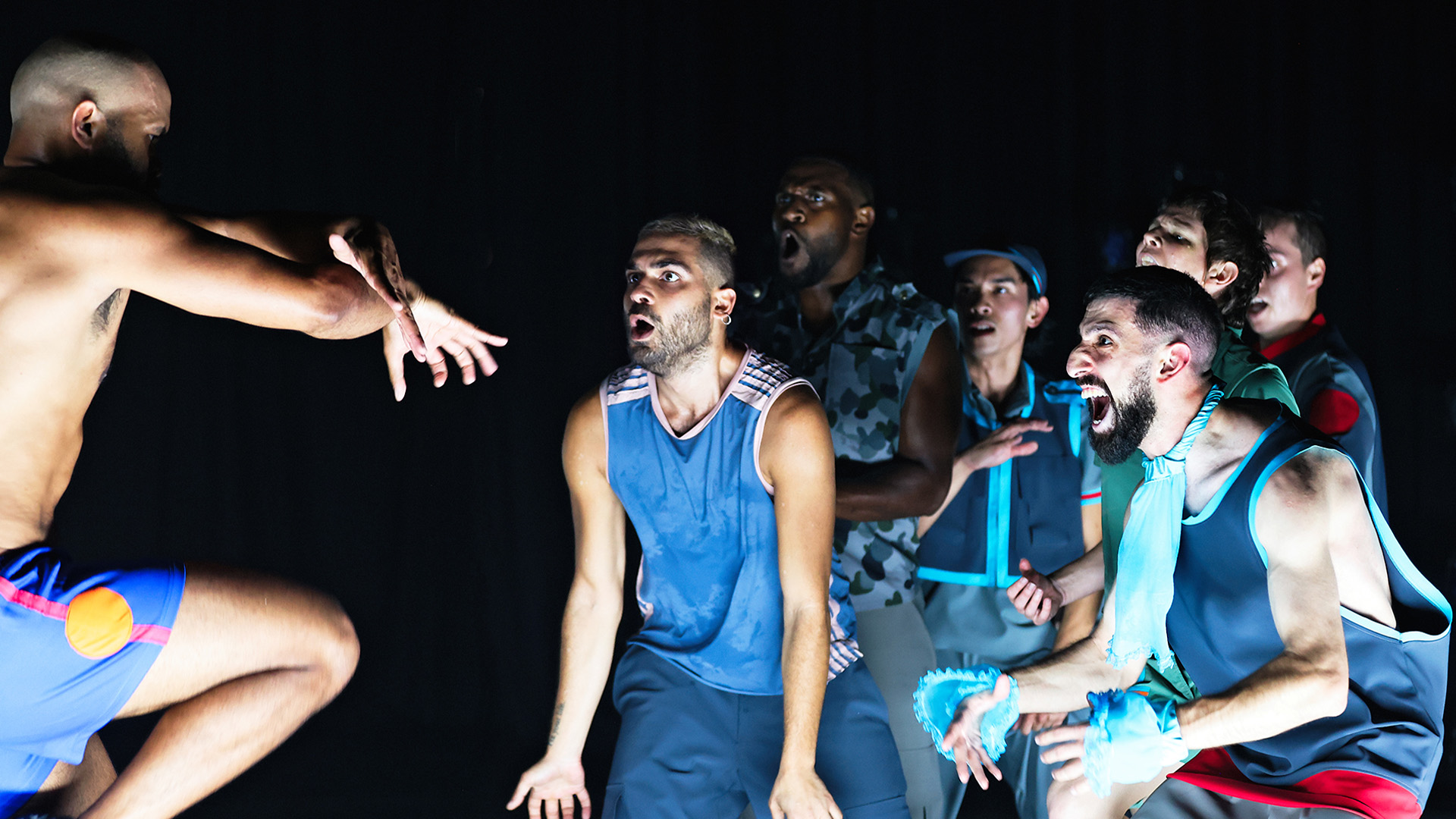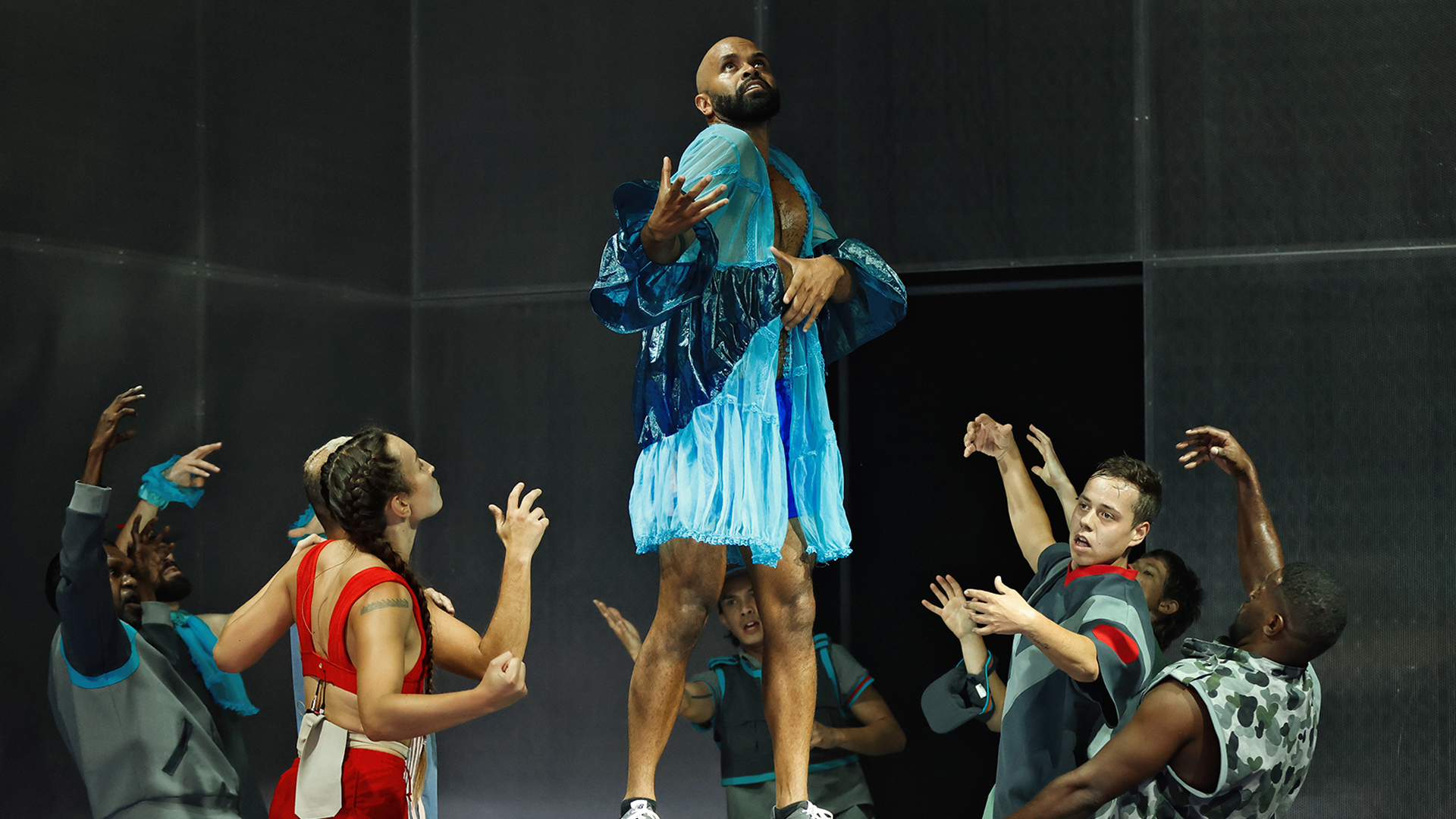
JURRUNGU NGAN-GA (STRAIGHT TALK) : NOTES FROM THE CREATORS
Marrugeku's Artistic Co-Directors Dalisa Pilgrim and Rachael Swain on the themes, community consultation and gestation of Jurrungu Ngan-ga for RISING 2022.
Sadness, Anger, Resilience and Joy: The Making of Jurrungu Ngan-Ga
Artist Statement by Marrugeku's Dalisa Pigram and Rachael Swain.
In July 2016 we sat down with Yawuru leader, Patrick Dodson to discuss jurrungu ngan-ga, a Yawuru kinship concept that enables certain relatives to communicate "straight" or directly with one another. 30 years earlier Patrick had been one of six commissioners and the only non-lawyer who sat on the Royal Commission into Aboriginal Deaths in Custody. Thinking about jurrungu ngan-ga as a concept to inspire a new work for Marrugeku, Patrick said: "Because we lack the ability to straight talk to one another, this fear grows in each generation, holding community and society back in multiple ways."
As it happened, the evening before the ABC had aired the devastating documentary titled Australia’s Shame, exposing the brutal treatment of Indigenous children in the Northern Territory’s Don Dale Youth Detention Centre. The footage taken on mobile phones inside the prison showed young offenders stripped naked, assaulted and tear-gassed. As we talked, Patrick took the time to receive phone calls from the boy's lawyers and the media and then returned to jurrungu ngan-ga. He then made the critical link between the rampant imprisonment of Indigenous Australians, who remain proportionally some of the most incarcerated peoples in the world, and the locking up of refugees in offshore and onshore detention centres. He suggested: “This linked scenario stems from our history as a penal colony. We are a nation of jailers, we lock up that which we fear,” and asked: “Why does it take five big men to detain one little boy? Cruelty is a heinous thing." Patrick then posed a crucial question: How would we work to embody fear on stage?
Researching this question led us to the ground-breaking autobiographical novel No Friend But the Mountains: Writing from Manus Prison (2018); a collaborative work written in Farsi by Kurdish Iranian journalist and filmmaker Behrouz Boochani and translated into English and edited by Iranian Australian scholar-activist Omid Tofighian. Behrouz’s account of his perilous journey to Australia in search of safety and protection, and his subsequent incarceration in the Australian-run immigration prison on Manus Island (PNG), was translated by Omid from thousands of WhatsApp messages typed into a smuggled phone (most of the messages were collated first by Boochani’s other translator, Moones Mansoubi). In Behrouz’s and Omid’s culturally situated, philosophical and political framing of Australia’s carceral-border regime, we found critical tools, approaches to genre and key scenes that helped us to activate Patrick’s questions.

We invited Behrouz and Omid as guest cultural dramaturgs to join Patrick in this long term role with the company, working alongside Flemish dance dramaturg Hildegard de Vuyst. Through this intersectional dialogue we extended Marrugeku’s existing intercultural and improvisational devising processes to produce three distinct performance genres for the work: "straight talk", "horrific surrealism" and "this is Australia". In this way we have continued Marrugeku’s core mission to work through the methodologies of Indigenous governed intercultural performance to create art that interrogates the burning issues of our times.
Jurrungu Ngan-ga is set in the "prison of the mind of Australia", expertly designed by Abdul-Rahman Abdullah to both foreground the "inside" and the "outside" and at once to reveal its flimsy construction. Searing truths blend with dark humour, courage, fear, sadness and anger to shine a light on new ways to resist and abolish. The multi-talented cast and creative team draw on their intersecting yet distinct cultural and community-informed experiences (Indigenous, people seeking asylum, transgender and settlers of many backgrounds) to ask: "who really is in prison here?" Together this extraordinary team have drawn on their intersecting yet distinct experiences, responding through choreography, sound and visual art to investigate that which Australia wishes to lock away, to put behind walls and to isolate.
The making of Jurrungu Ngan-ga has required a constant engagement with sadness, anger, resilience and joy. We are honoured to work with this amazing team of collaborators who have brought their own lived experience, bodies, politics, spirit and passion to the making of the show.
“The team involved in Jurrungu Ngan-ga dove into No Friend But the Mountains as artists and saw special portals. As artists, as people concerned with resistance and an embodied vision for challenging systems, all the people involved in Jurrungu Ngan-ga have a way of seeing, creating and knowing that deeply bordered and colonized spaces will never be able to foster and teach. In radical and powerful spaces like Jurrungu Ngan-ga there is another way to imagine the world. These conversations and actions will continue to grow and influence other space."
— Tofighian, Omid (2021): 'Horrific Surrealism: New Storytelling for Australia’s Carceral-Border Archipelago' in: Marrugeku: Telling That Story—25 years of trans- Indigenous and intercultural performance. Performance Research, Wales.
PHOTOS: PRUDENCE UPTON